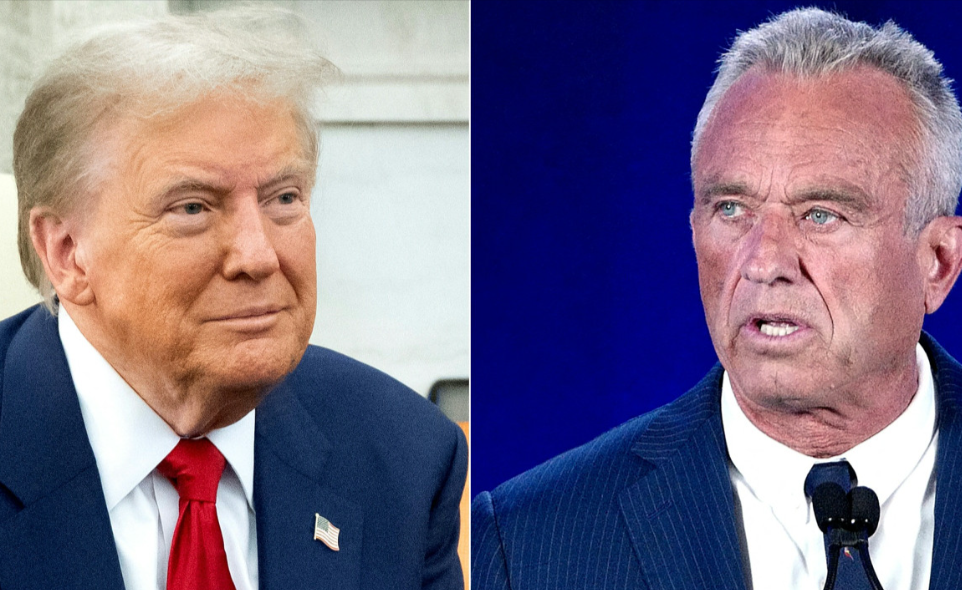RFK Jr. Says Trump Gave Him Greenlight To Clean Up ‘Poisonous’ Foods

The individual President-elect Donald Trump has chosen to lead the Department of Health and Human Services (HHS) continues to outline his ambitious plans for public health reform.
Robert F. Kennedy Jr., a name once synonymous with Democratic leadership but now tied to his Independent presidential run, is increasingly focused on addressing the health and well-being of American children. Among his priorities is a push to reduce the consumption of ultra-processed foods by younger generations.
“We have a generation of kids who are swimming around in a toxic soup right now,” Kennedy previously stated in an interview with Fox News. “We’re letting these industries corrupt our agencies and mass poison them.”
Dr. Marc Siegel, Fox News’ senior medical analyst, appeared on Fox & Friends to delve into Kennedy’s proposed measures to combat the prevalence of ultra-processed foods, which currently dominate 73% of the U.S. food supply. Siegel highlighted the dangers associated with food dyes, particularly Red Dye No. 3.
“Food coloring is a problem,” Siegel said. “Red Dye No. 3 has been banned in Europe. They’re banning it in California. It’s been associated with cancer in animals.”
He also mentioned studies linking food dyes to hyperactivity in children.
Both Democrats and Republicans have advocated for banning harmful food additives, but these initiatives have repeatedly encountered resistance from the powerful food industry lobby.
“There’s a concern here that if this ends up with more regulations, that will drive prices up — and food grocery store prices are already a problem,” Siegel acknowledged. He emphasized, however, that Kennedy’s concerns about the harmful effects of ultra-processed foods on children are valid. Additives like MSG and high-fructose corn syrup contribute directly to obesity, while nitrates are linked to cancer in animals, Siegel explained.
Excessive consumption of sugar and salt was another concern raised by Siegel, who said these substances fuel unhealthy eating habits. “People just get drawn in to eat and eat and eat, and they gain weight,” he noted.
“When they gain weight, they get high blood pressure, they get diabetes, they get heart disease, and they have a risk for cancer,” Siegel added.
Despite these concerns, Siegel acknowledged the challenges Kennedy faces in navigating regulatory hurdles.
“There’s pressure being put on the FDA (Food and Drug Administration) by the food industry, by the pharmaceutical industry, by the lobby groups in Congress,” Siegel said. “They have so much power, they pretty much dwarf the FDA.”
WATCH:
Kennedy has emphasized that his goal isn’t to “shut down big pharma,” a sentiment Siegel echoed during a previous interview with NBC News. Instead, Kennedy is advocating for a balance between encouraging advancements in medicine and promoting preventive health measures.
According to Siegel, pharmaceutical companies have made significant strides with innovations like personalized treatments and AI-driven technologies. However, he argued that the current system operates more like a “sick care system,” profiting from illness.
“They should give tax incentives for going on the treadmill or taking a walk in the morning or eating farm-to-table food or having more produce,” Siegel suggested. “We’ve got to go back to a healthier lifestyle, and then we’ll have less money spent on being ultra sick.”
In an interview with NBC’s Vaughn Hillyard, Kennedy faced questions about his controversial stance on reducing fluoride levels in public drinking water.
HILLYARD: And so what does that look like without debating, without going back and forth on the science?
KENNEDY: It’s lowering IQ in our children.
HILLYARD: What would you — on January 2025 we’re 3 months away here, what would you actually do?
KENNEDY: I think fluoride is on it’s way out —
HILLYARD: And how would you make that happen? This is your chance, is what you’re suggesting to me. How would you make that happen?
KENNEDY: Listen to what I’m saying! And then I’ll tell you. I think fluoride is on the way out because that court decision, I think the faster that it goes out, the better. I’m not going to compel anybody to take it out, but I’m going to advise the water districts about their legal liability, their legal obligation to their service, to their constituents. And I’m going to give them good information about the science. And I think fluoride will disappear.
WATCH:
Robert F. Kennedy Jr will advise water districts currently using fluoride to review new science:
— The American Conservative (@amconmag) November 6, 2024
"I think fluoride is on the way out. I think the faster it goes out the better."pic.twitter.com/t0RPseUgxg